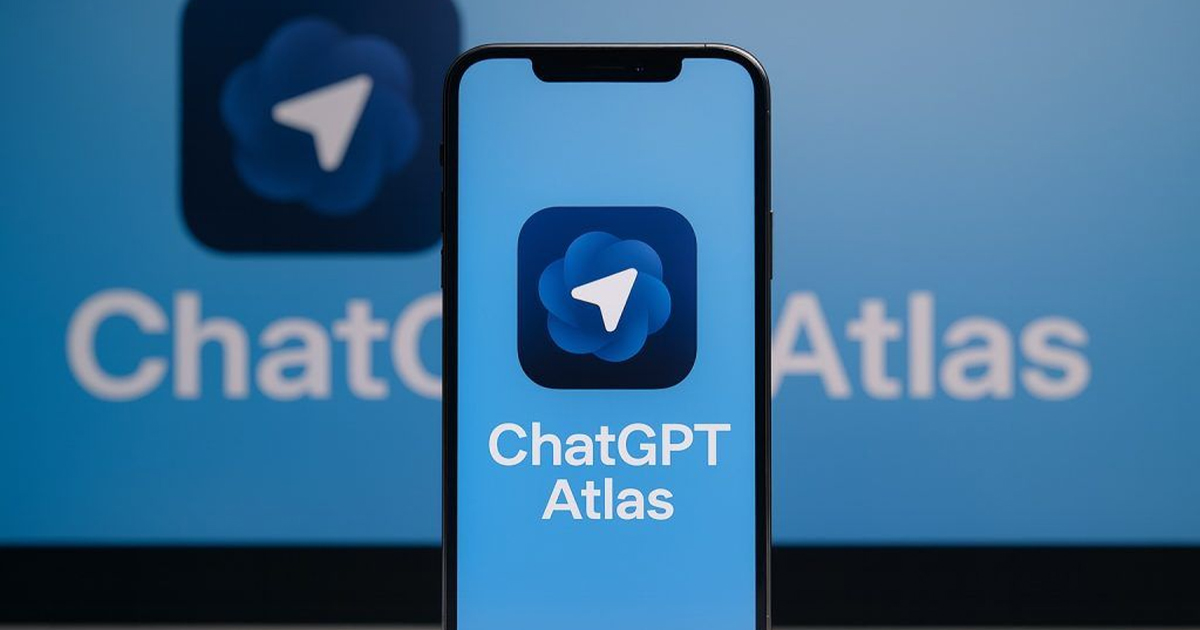In a world where artificial intelligence (AI) is evolving at an unprecedented rate, the impact on digital content creation is undeniable. From deepfake videos to AI-generated content mimicking the likeness of celebrities and online creators, the challenge of maintaining content authenticity is growing. Recently, YouTube announced that its technology will soon be able to detect AI-generated copies of celebrities and creators to ensure content authenticity. This groundbreaking development raises important questions about the future of content authenticity, copyright protection, and the broader implications for online video platforms. The ability to detect AI manipulations has the potential to reshape how users engage with content and establish new standards for digital media verification.
In this article, we explore the rise of AI-generated content, YouTube’s role in combating AI fakes, the growing threat of manipulated videos, and what this means for creators and the broader online community.
The Rise of AI-Generated Content
AI-generated content, particularly deepfake videos, has made headlines in recent years for its ability to replicate individuals with astonishing accuracy. Deepfake technology, powered by artificial intelligence and machine learning algorithms, allows creators to alter videos and images so convincingly that it can be nearly impossible to tell what is real and what is fabricated.
For example, a deepfake video could replace the face of a public figure, such as a celebrity or politician, with someone else’s face, or even create entirely fabricated video content from scratch. The AI technology behind deepfakes uses complex algorithms to analyze and synthesize facial features, speech patterns, and movements, making it appear as though the video was created by the original individual.
This technology has caused significant concern for industries across the board, from entertainment to politics. The entertainment world, in particular, has witnessed the use of deepfake technology to generate fake videos of popular stars, often to the detriment of their reputation. Similarly, social media influencers and online creators are at risk of having their likenesses stolen, used in malicious ways, or created fake endorsements or fake news.
The Role of YouTube in Combatting AI-Generated Content
YouTube, the world’s largest video-sharing platform, has been a pioneer in the fight against inappropriate and harmful content. Its efforts to protect its users from misinformation and fraud are vital in today’s digital landscape, where content can be easily manipulated and spread worldwide in seconds. YouTube has long relied on machine learning algorithms to detect and flag videos that violate its community guidelines, including content that promotes violence, hate speech, or harassment. However, the rise of deepfake technology and AI-generated content has presented a new and complex challenge for the platform.
In response, YouTube has committed to using cutting-edge AI tools to detect and remove fake videos that impersonate celebrities or creators. This effort is part of a broader initiative to ensure content authenticity and protect both creators and viewers from misleading information.
How Does YouTube Plan to Detect AI Copies?
YouTube’s detection system leverages advanced machine learning and AI algorithms to analyze various aspects of uploaded content. The platform examines video content for inconsistencies in visual elements, such as unnatural facial movements, warped audio, or pixelation. These issues often arise in AI-generated videos that attempt to replicate a person’s face, voice, or gestures, to ensure content authenticity.
The detection system can also analyze metadata, source data, and other behind-the-scenes information to identify when AI manipulation might have occurred. YouTube is working to develop real-time tools that can automatically flag and label manipulated content before it reaches a wide audience. As AI technology continues to improve, YouTube is actively enhancing its systems to detect even the most sophisticated forms of manipulation.
By deploying machine learning algorithms, YouTube aims to reduce the spread of harmful or misleading AI-generated content while providing users with greater transparency. This is crucial for maintaining trust between content creators and their audiences, as well as ensuring that viewers can distinguish between authentic and manipulated content.
The Growing Threat of AI Manipulation in the Digital Age
As AI technology advances, the potential for misuse grows. Celebrities, influencers, and online creators are particularly vulnerable to having their likenesses copied and manipulated by malicious actors. The rise of deepfake technology has brought about new concerns, including the creation of fake videos or images that portray individuals doing or saying things they never actually did.
The implications of AI-generated content are far-reaching. In some cases, individuals have used deepfakes to damage the reputations of public figures, fabricate scandals, or engage in fraudulent activities. For example, deepfake videos could be used to make it seem like a celebrity-endorsed a product or made controversial statements, leading to public backlash and financial losses for the brands involved. All this is carrying out to verify content authenticity.
Impact on Celebrity Culture and Intellectual Property
Celebrities and creators invest years into building their public image, establishing trust with their audiences, and creating authentic content. However, with the rise of AI tools, it has become easier for malicious actors to impersonate these individuals and create content that could damage their brand. This not only poses a significant challenge for public figures but also presents major concerns about intellectual property and copyright.
The unauthorized use of a creator’s image or likeness raises complex legal questions. How can creators protect their intellectual property when their faces, voices, or personas are being replicated without their consent? How can the law keep up with rapid advancements in AI technology, which is increasingly being used to infringe on personal rights and mislead the public?
While some creators may attempt to take legal action against AI-generated impersonations, this process can be time-consuming and costly. YouTube’s detection technology aims to provide a proactive solution to this issue, helping to mitigate some of the risks associated with AI manipulation.
YouTube’s Role in Protecting Creators’ Rights
YouTube’s commitment to detecting AI-generated copies is part of a larger movement to ensure the integrity of the platform and protect creators from impersonation and fraud. YouTube’s efforts to address this growing issue demonstrate its responsibility to safeguard both the platform’s reputation and its creators’ intellectual property.
By implementing advanced AI detection systems, YouTube can help creators monitor their content and protect their brands from unauthorized use. This could also help users avoid falling victim to fraudulent or misleading content that may undermine the authenticity of their favorite creators.
Partnering with Technology Experts for AI Detection
In its efforts to stay ahead of the rapidly evolving world of AI, YouTube is partnering with external experts in AI, cybersecurity, and digital forensics. These partnerships allow YouTube to continuously improve its AI detection tools and stay on top of new techniques used to manipulate videos and images. Collaboration with academic researchers and tech companies ensures that YouTube’s detection capabilities remain robust in the face of increasingly sophisticated AI technology.
Moreover, YouTube is actively engaging with the creator community to raise awareness about the risks associated with AI manipulation. The platform provides educational resources and tools to help creators protect their content and quickly flag any AI-generated impersonations.
The Challenges of Detecting AI-Generated Content
Despite YouTube’s advancements in AI detection, the process of identifying AI-generated content remains a significant challenge. As AI technology continues to evolve, it becomes increasingly difficult to differentiate between authentic and manipulated content. Deepfake creators are constantly refining their techniques, making it harder for detection systems to keep up.
Moreover, AI-generated content is becoming more accessible, with affordable tools available to anyone with a basic understanding of machine learning. This democratization of deepfake technology means that even amateur creators can produce convincing AI fakes, further complicating the detection process.
The Arms Race Between AI Generators and Detection Systems
This ongoing battle between AI content creators and detection systems is often referred to as an “arms race.” As deepfake creators develop more advanced methods, detection systems must evolve to keep pace. While YouTube’s detection system is robust, it will require constant refinement to stay ahead of emerging AI trends.
In the long term, this arms race may lead to the development of entirely new technologies, such as blockchain-based verification systems, that offer additional layers of authenticity checks for online content.
The Future of AI and Content Creation
While YouTube’s efforts to detect AI-generated copies are an important step in the fight against content manipulation, the future of digital content creation will inevitably involve more AI-driven tools. As AI technology becomes more sophisticated, it will be easier for creators to produce high-quality, AI-generated videos, raising questions about how to maintain content authenticity across platforms.
As AI continues to blur the lines between real and fake, content platforms like YouTube need to stay vigilant and keep developing new methods for detecting manipulations. This may include utilizing advanced machine learning algorithms, integrating blockchain technology for content verification, and collaborating with regulatory bodies to establish industry standards for AI content.
Will AI Detection Be Enough?
Though YouTube’s AI detection system is a valuable tool in the fight against digital manipulation, it may not be enough to fully address the challenges posed by deepfakes and other AI-generated content. As AI technology continues to evolve, detection systems must be continually upgraded to keep pace with new techniques and threats. The future of content authenticity may require a combination of AI detection and other technologies, such as blockchain, to create verifiable content that is immune to manipulation.
Conclusion
YouTube’s initiative to detect AI-generated copies of celebrities and creators is a promising development in the ongoing effort to preserve content authenticity in the digital age. By leveraging machine learning and AI, YouTube is making strides to identify and remove misleading content that impersonates real individuals. However, the rapid evolution of AI technology means that this battle is far from over.
To maintain trust between creators and their audiences, platforms like YouTube must continue to innovate, ensuring content authenticity, that both users and creators are protected from the harmful effects of AI manipulation. As the technology evolves, so too must the strategies used to detect and mitigate the risks associated with deepfakes and other forms of AI-generated content.
Final Thoughts
As AI technology continues to advance, it’s clear that content platforms like YouTube will play an essential role in ensuring the authenticity of digital media. While the tools and strategies for detecting AI-generated content are improving, the digital landscape will continue to evolve. The future of content creation will depend on a collaborative approach between AI innovators, tech platforms, and the creator community to ensure that content remains trustworthy and authentic in an increasingly AI-driven world.
Wanna know about AI Talent war, the impact of AI.

Jahanzaib is a Content Contributor at Technado, specializing in cybersecurity. With expertise in identifying vulnerabilities and developing robust solutions, he delivers valuable insights into securing the digital landscape.








